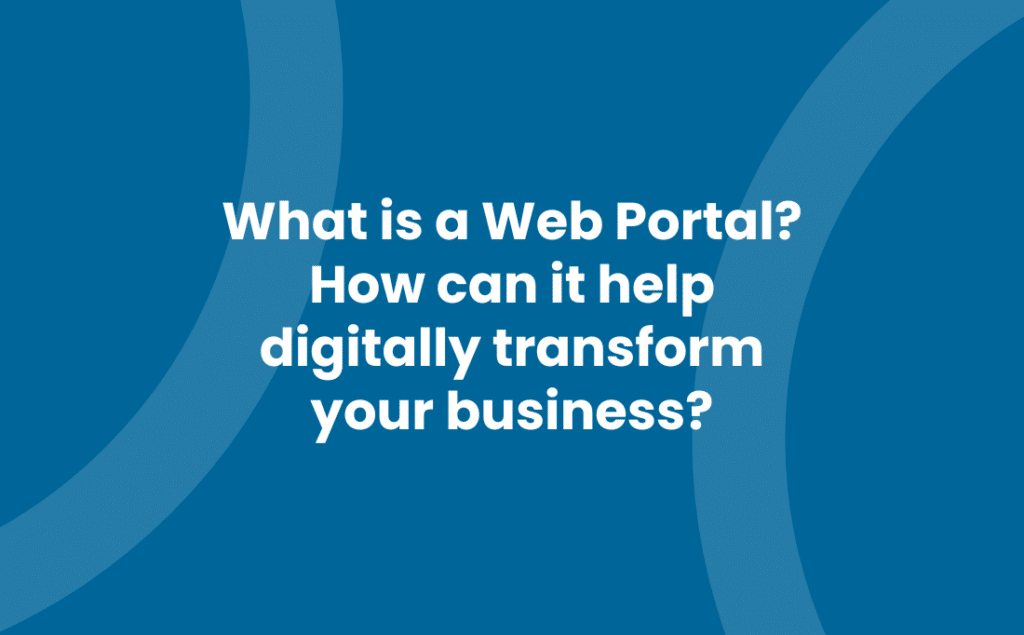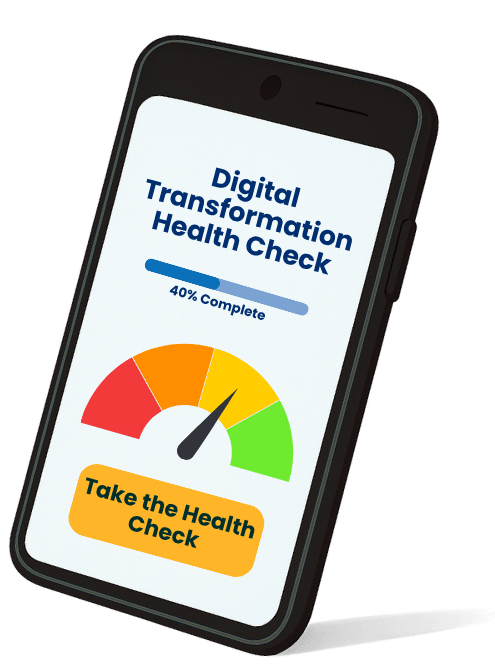A web portal is typically a way to share your business information with people outside of your organisation. For a customer, this might be the ability to view their invoices, past orders and quotes that you have created, as well as membership or subscription information, enabling them to get this information on a self-serve basis. In addition, a web portal can be used to collect information from people outside of your organisation. For example, the ability for your customers or suppliers to log a support ticket, or to request a quotation for supply of goods and services.
In summary, a portal website provides businesses with a digital way to communicate with the outside world, saving time for all parties involved. Designed correctly, portal websites deliver a valuable user experience (UX), helping you to strengthen your relationship with your customers, suppliers and partners in a streamlined and efficient way.
How Do Web Portals Work?
What is a portal website exactly in terms of functionality? Think of it as a secure, interactive website where users log in to access or submit data. This information is typically held in your operational systems (CRM, ERP, accounting systems, etc.) and transferred securely between the portal website and your systems using APIs. It becomes a gateway that seamlessly connects users to your internal processes.
Many software packages, such as your CRM and accounting systems, offer out-of-the-box web portals, and some of these provide a level of configuration for you to personalise the portal. However, these can sometimes lack intuitive design, making them difficult for your audience to use effectively.
Also, if you can’t personalise the portal website to reflect your brand, adoption tends to suffer. Without user buy-in, the benefits of digital transformation through portals can be lost, leaving your team and external users frustrated.
What makes a good web portal?
A good portal website should not only function well but also be built around the user’s needs. What is a portal website if not a tool designed to empower users and enhance business communication?
To ensure success:
- Map out user journeys before development.
- Prioritise ease of use and intuitive navigation.
- Integrate your brand personality into the design.
Once your requirements are clear, your technology partner can determine the right path forward.
We typically assess:
- Built-in portal capabilities of your existing software.
- Custom solutions using our Applications Platform.
- Fully bespoke portals using Angular framework for maximum flexibility.
Process Automation with Web Portals
Another layer of value added by portal websites is process automation. Automating notifications, quote approvals, or order processing ensures consistent and efficient communication with stakeholders.
For example:
- A customer request in the portal can create a sales opportunity in your CRM.
- Approvals can trigger automated workflows in your ERP system.
What is a portal website in this context? It’s more than a static site—it’s a dynamic tool that integrates with your systems to drive automation and digital efficiency.
Frequently Asked Questions
What is a portal website and how is it different from a regular website?
A portal website is an interactive, secure platform where users can log in to access personalised data or perform specific tasks—such as viewing invoices or submitting forms. Unlike regular websites, which are mostly informational, a portal website offers functionality and integrates directly with your internal business systems.
Who typically uses a portal website?
Customers, suppliers, employees, and partners often use portal websites. Each group can access tailored content based on their role—for example, customers may view order history while suppliers might upload invoices or respond to requests.
What are the key benefits of using a portal website for a business?
A portal website improves efficiency, reduces manual tasks, and enhances user satisfaction by providing a self-service platform. It also helps strengthen relationships by offering a streamlined, accessible, and branded user experience.
Is building a portal website expensive or time-consuming?
The cost and timeline for building a portal website depend on the level of customisation required. Pre-built solutions offer quicker deployment but less flexibility, while fully custom solutions like those using Angular provide greater control at a higher development effort.
How secure is a portal website?
Security is a top priority when creating a portal website. With proper integration, authentication, and encryption, portals can safely handle sensitive business data and user information while complying with industry regulations.



